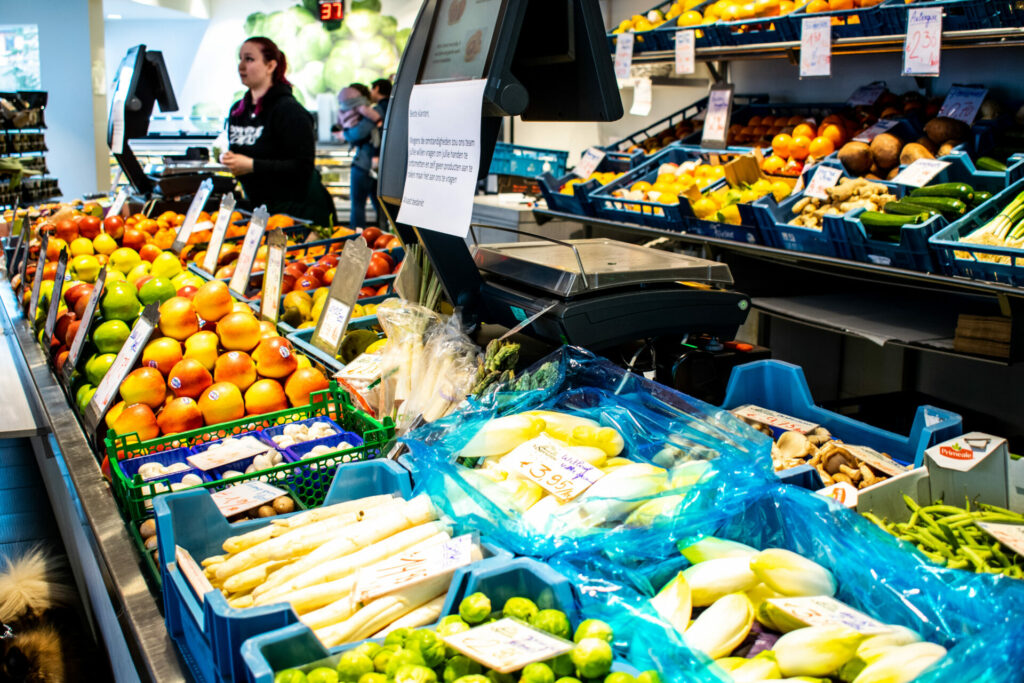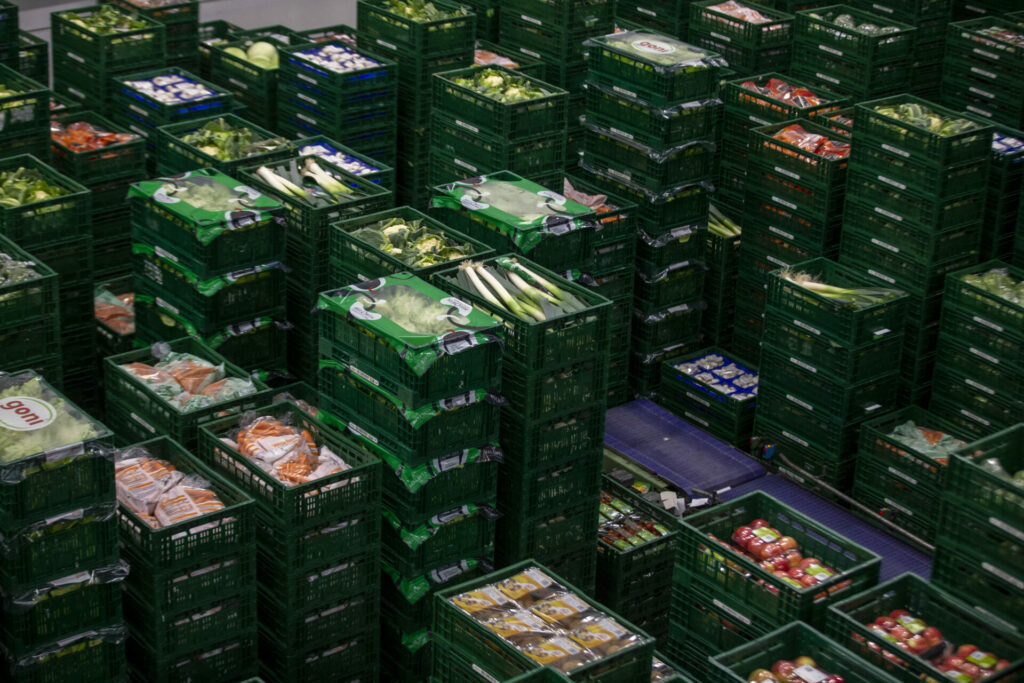December saw Belgium's inflation fall for the second consecutive month though it remains above 10% – largely driven by food inflation. This is reflected in the average cost of groceries, which has risen 20% since last year.
In December, inflation in Belgium was at 10.35% (down from 10.63% in November), driven primarily by energy and food prices. The latter had an inflation rate of 14.53%, which pushed total inflation up by 2.77%. The rise in food prices is reflected in the cost of an average family's shopping trolley.
While a calculation made by consumer protection organisation Test-Achats in August last year found that shopping for groceries already cost 12.33% more than in the same month last year, this figure rose to 18% by December and is now nearing 20%, the organisation reported on Wednesday.
Test-Achats has calculated the effects of food inflation on supermarket prices every month based on 3,000 products across seven supermarket chains. In December 2022, it found that people were paying 19.67% more for an average grocery shop compared to the same month last year, breaking the previous month's record.
"The festive month of December is a more expensive supermarket month for many families anyway: for Christmas and New Year, we buy different, more expensive products. Consumers may therefore not have noticed it as much, but prices have risen yet again," the organisation wrote in a statement.

"A family with two people now pays an average of €497 per month in the supermarket." BELGA PHOTO CHARLOTTE GEKIERE
"A family with two people now pays an average of €497 per month in the supermarket, which is €82 more than a year ago and €9 more than last month."
Test-Achats explained that the reasons for all price increases are still the same as in previous months. "There is a smaller supply due to crop failures and the war in Ukraine, but high energy prices, transport costs and labour costs are also passed on in the price of products."
Cost of frozen food rising sharply
The top five products of which the prices rose most sharply from one month to the next consisted of spaghetti (+53%), frozen chips (+50%), aluminium foil (+47%), paper products such as kitchen paper, toilet paper and tissues (+46%) and frying oil (43%).
"Overall, frozen foods rose sharply in price. On average, these cost 23% more than a year ago," Test-Achats noted.
As has been the case in previous months, dairy products also ranked high on the list of products that have risen in price. On average, dairy products are now 27% more expensive than a year ago, with gouda cheese (+41%), butter (+38%) and semi-skimmed milk (+30%) standing out.
Eggs also became 29% more expensive compared to last year, while people have to fork out an average of 18% more when purchasing meat. The price of fruit also rose, by 9%, which is still a significant increase, the organisation noted.
Related News
- Belgians' savings fell in 2022 for the first time in five years
- What changes in Belgium on 1 January?
Granny Smith apples and wet baby wipes are the only products that became cheaper, by 2% and 0.12% respectively.
In light of the continued hike in food prices, Test-Achats repeated its tips for saving: to compare the price per kilo or per litre to find the cheapest product and to look out for promotions.

